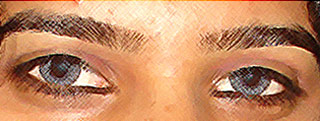
It was stated that the changes in the human eye may be gauged via the changes which take place in the level of the cytokine protein. Supposedly, the well-being of the eye may be determined through cytokines. This inflammatory protein is said to be available in the tear film.
In order to test the eye health of the people who wear contact lenses a research was conducted on about 80 subjects. These experts were also said to have prescribed the subjects to wear contact lens known as the silicone hydrogels for a particular period of time.
Lead researcher, Lucy Kehinde, doctoral student in the Vision Sciences Graduate Program, University of Alabama at Birmingham, says that, “It is helping us to understand and get a clearer picture of eye health during the course of a month, which is the length of time some people choose to keep in their extended-wear contacts. The choice between lenses should be taken seriously in terms of reducing the risk of eye infections and other sight problems.â€
The subjects were asked to collect their tears in ultra-thin glass tubes for analysis. It’s not as simple as it sounds. These subjects were seemingly even coached on how to collect their tears without touching their eye with the tube.
The research was concluded by expressing the hope that these findings may be helpful in the development of novel diagnostic tools which may be useful in detecting potential aspirants for extended-wear lenses and also possibly even identifying those people who may be apt for the use of daily-wear lenses.
This research has been presented at the annual meeting of the Association for Research in Vision and Ophthalmology (ARVO).
